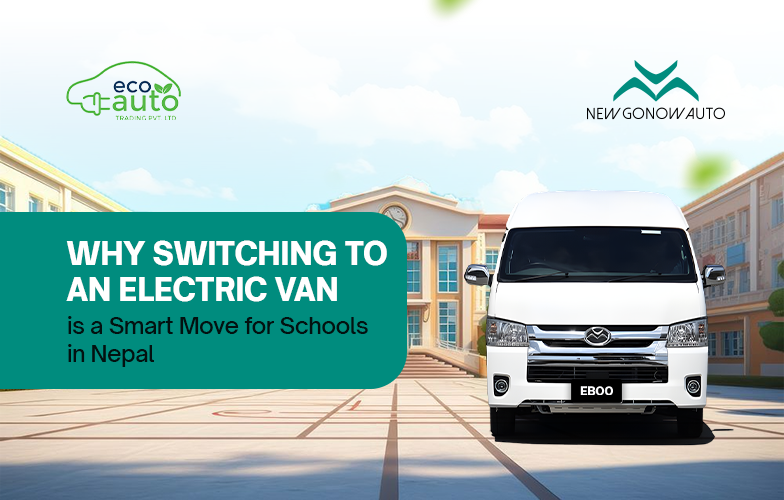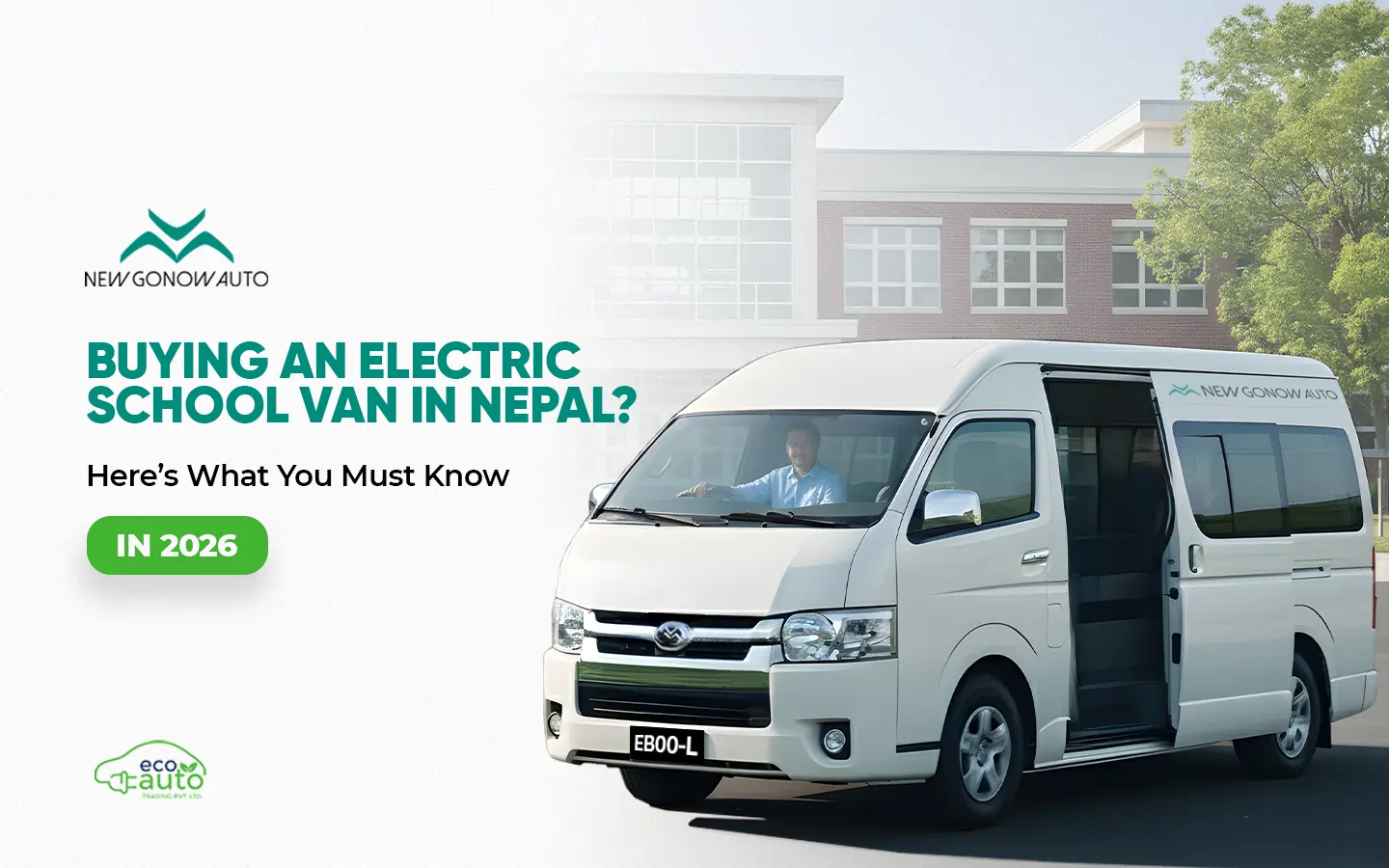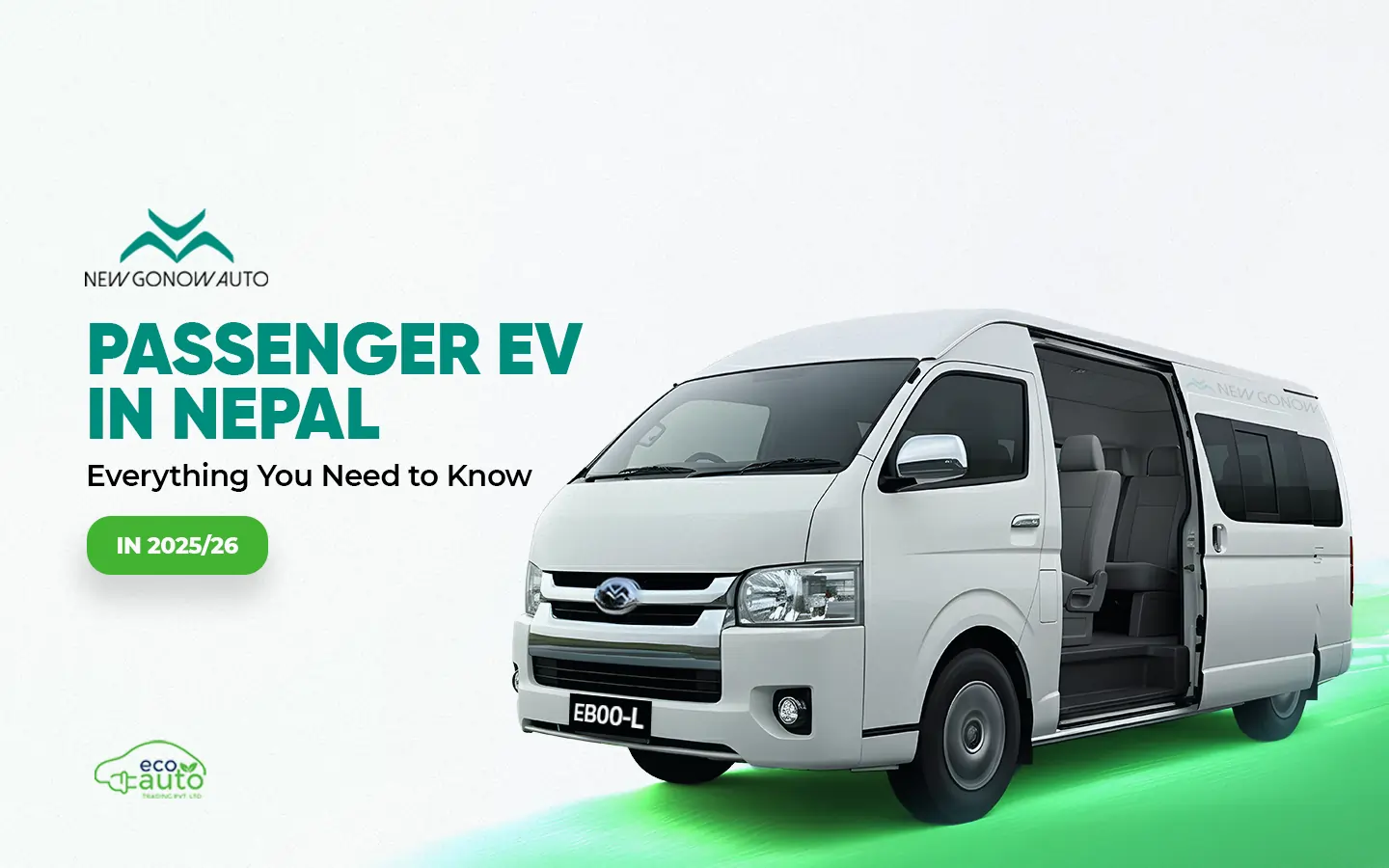
Why Switching to an Electric Van is a Smart Move for Schools in Nepal
The demand for a reliable and eco-friendly EV school van in Nepal is growing as schools look for greener, cost-effective transport solutions. Choosing the best electric school vans in Nepal helps educational institutions provide safe daily commutes, reduce operating costs, and support a sustainable future.
From everyday pickups to school trips, EV school vans offer advanced safety features, low maintenance, and long-term savings. Switching to an electric school van in Nepal is more than a trend it’s a smart investment for schools seeking efficient, eco-friendly, and future-ready transportation solutions.
The Growing Demand for School Transport in Nepal
Every day, thousands of students in Nepal rely on school transportation. Traditional diesel vans have long been the standard—but they come with challenges:
- High fuel costs
- Rising maintenance expenses
- Harmful carbon emissions
- Noise pollution
In response, forward-thinking schools are now turning to electric vans, and companies like Eco Auto Nepal are leading the way in making these vehicles accessible across the country.
Why Choose an Electric Van in Nepal for Your School?
1. Lower Operational Costs
Fuel prices are rising steadily in Nepal. EV vans, however, operate on electricity, which is far cheaper:
- EV vans cost only Rs. 1.5–2 per km to run.
- Minimal maintenance—no oil changes, no exhaust issues.
This allows schools to save significantly over time, freeing up funds for education quality and infrastructure.
2. Eco-Friendly Transport
Electric vans produce zero tailpipe emissions, making them an ideal choice for cities like Kathmandu or Pokhara, where pollution levels are high.
- Helps reduce the school’s carbon footprint.
- Promotes environmental awareness among students.
Switching to an electric van in Nepal shows a school’s commitment to sustainability and social responsibility.
3. Quiet and Safe Ride
EV vans provide a quiet, smooth ride—perfect for transporting students comfortably.
- Less noise pollution around schools.
- Instant torque means better control and smoother acceleration.
Eco Auto Nepal’s electric vans are designed with student safety and comfort in mind, featuring sturdy build quality and advanced braking systems.
4. Government Incentives
The Government of Nepal is actively supporting EV adoption with:
- Low customs duty and VAT on EVs.
- Exemption from excise duty and annual road tax.
- Green number plates for visibility and status.
Buying your electric van from Eco Auto Nepal ensures you’re eligible for these incentives and guided through the paperwork.
5. Easy Charging and Reliable Range
With charging stations expanding across Nepal and home/office charging options available, managing an EV fleet has never been easier.
- Eco Auto Nepal provides charging solutions for schools.
- EV vans offer up to 200–300 km range, ideal for school operations.
Daily school routes, even in outer urban areas, are easily covered on a single charge.
6. Build a Positive School Brand
By going electric, schools send a clear message:
“We care about our students, our environment, and our future.”
Parents appreciate institutions that prioritize clean energy, safety, and innovation. Switching to EV vans in Nepal boosts your school’s image and credibility.
Why Eco Auto Nepal is the Right Partner
As a leading provider of EV vans in Nepal, Eco Auto Nepal understands the transportation needs of educational institutions. Here’s why schools trust Eco Auto:
- Tailored EV van options for student capacity and range.
- After-sales service and warranty support.
- Assistance with charging infrastructure setup.
- Transparent pricing and consultation on government subsidies.
Whether you’re a private school in the valley or a community school in a hill town, Eco Auto delivers practical EV solutions built for Nepal’s geography and climate.
Conclusion
For schools in Nepal, shifting to electric vans isn’t just about cutting costs—it’s about investing in a cleaner, safer, and smarter future. From reducing pollution to saving money and building a stronger reputation, the advantages are clear.
So, if you’re still running on diesel, now is the time to make the switch.




